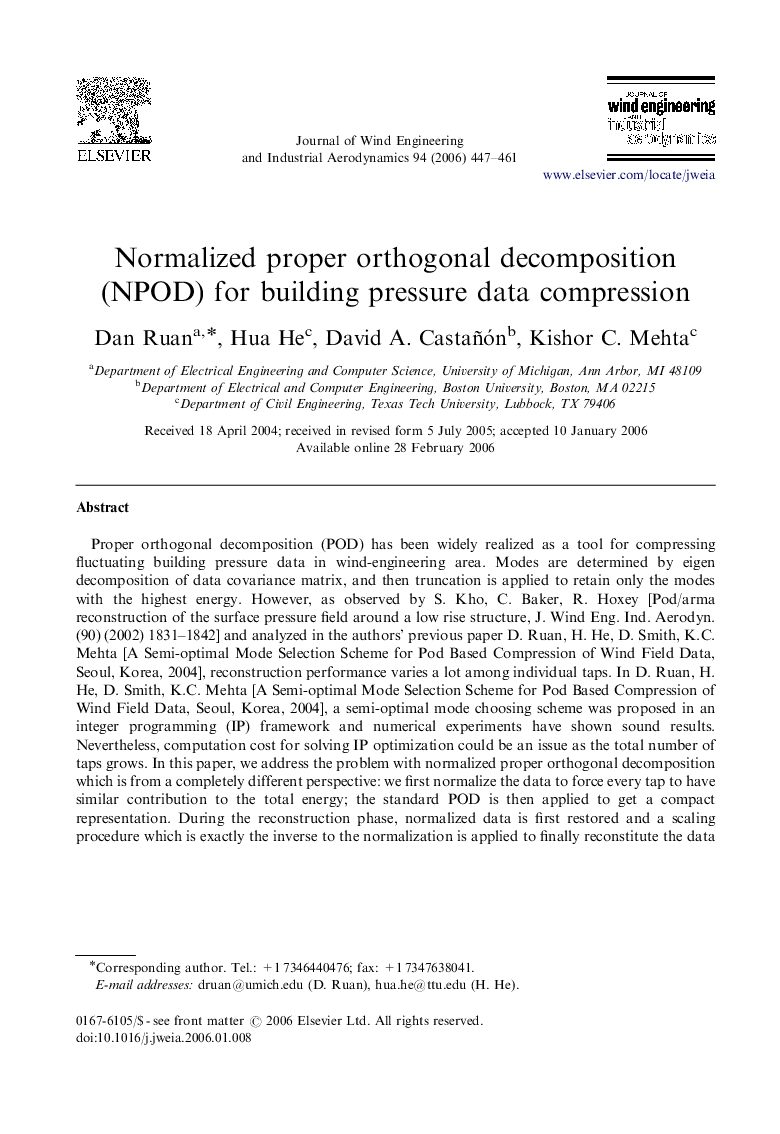| Article ID | Journal | Published Year | Pages | File Type |
|---|---|---|---|---|
| 292662 | Journal of Wind Engineering and Industrial Aerodynamics | 2006 | 15 Pages |
Proper orthogonal decomposition (POD) has been widely realized as a tool for compressing fluctuating building pressure data in wind-engineering area. Modes are determined by eigen decomposition of data covariance matrix, and then truncation is applied to retain only the modes with the highest energy. However, as observed by S. Kho, C. Baker, R. Hoxey [Pod/arma reconstruction of the surface pressure field around a low rise structure, J. Wind Eng. Ind. Aerodyn. (90) (2002) 1831–1842] and analyzed in the authors’ previous paper D. Ruan, H. He, D. Smith, K.C. Mehta [A Semi-optimal Mode Selection Scheme for Pod Based Compression of Wind Field Data, Seoul, Korea, 2004], reconstruction performance varies a lot among individual taps. In D. Ruan, H. He, D. Smith, K.C. Mehta [A Semi-optimal Mode Selection Scheme for Pod Based Compression of Wind Field Data, Seoul, Korea, 2004], a semi-optimal mode choosing scheme was proposed in an integer programming (IP) framework and numerical experiments have shown sound results. Nevertheless, computation cost for solving IP optimization could be an issue as the total number of taps grows. In this paper, we address the problem with normalized proper orthogonal decomposition which is from a completely different perspective: we first normalize the data to force every tap to have similar contribution to the total energy; the standard POD is then applied to get a compact representation. During the reconstruction phase, normalized data is first restored and a scaling procedure which is exactly the inverse to the normalization is applied to finally reconstitute the data in its original form. Feasibility test with experimental data from Texas Tech University yields good results. Computation cost is almost the same as the standard POD method.
